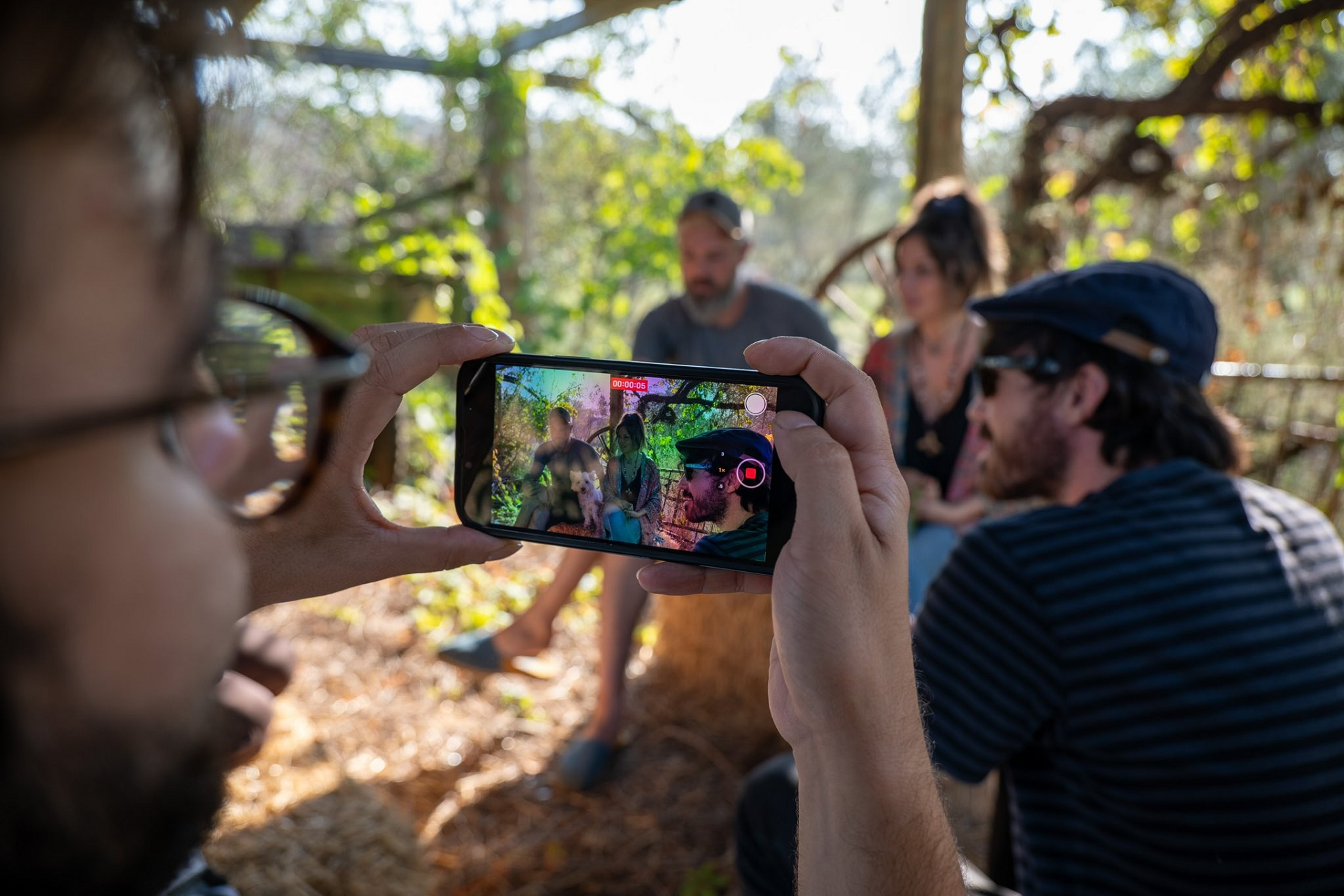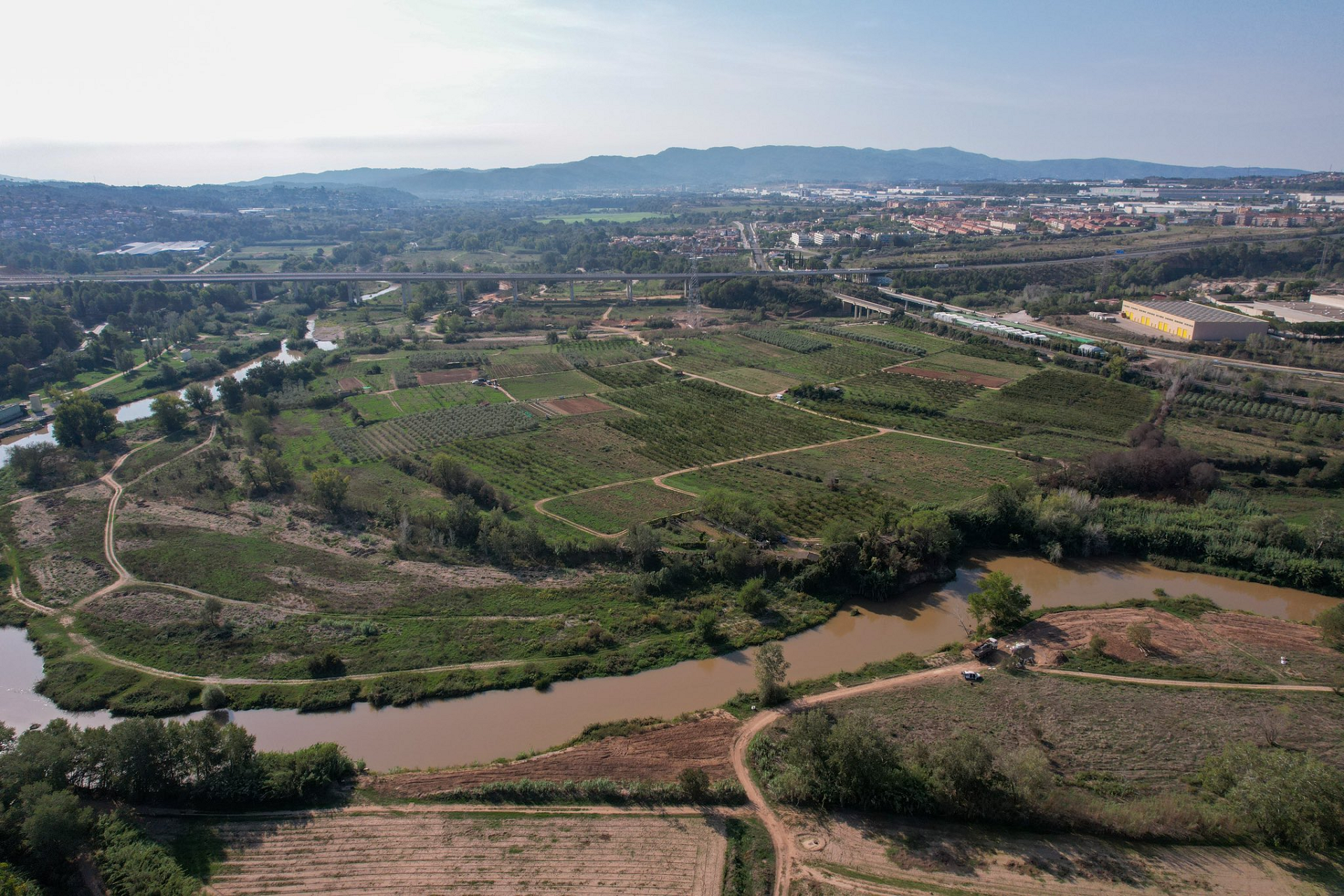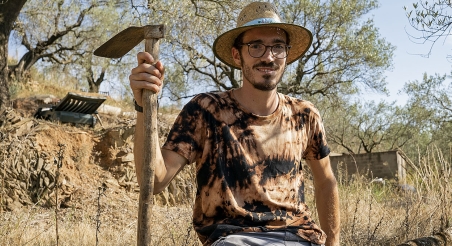More than twenty young people from the Mediterranean region visited the Montserrat Rural Park yesterday with the aim of understanding how land can be reclaimed for food production and the maintenance of the mosaic landscape. The visit was jointly organized by the BCN Smart Rural programs of the Barcelona Provincial Council and the Young Leaders of the European Forestry Institute (EFI), with the collaboration of the Union for the Mediterranean (UfM). The event gave participants an overview of the main initiatives that are underway in the territory to fight against the abandonment of agricultural fields and explored different opportunities that exist in the field of sustainable agricultural entrepreneurship and conservation biodiversity.
During the day, the participants visited four agricultural and livestock projects. First, Tatiana Segura and Sergi Ruiz, permaculturists in Can Rasca Orella, explained how they got their farm thanks to the Land Bank Network and highlighted the potential of this tool to recover underutilized or abandoned farmland of the territory.
At Hort del Puig, the young Mediterranean leaders understood from the farmer Nil Puig the meaning of agroecology and the application of innovation and entrepreneurship to promote sustainable farming practices. In Artelac, they took the herd of goats out to graze while José Luis Casanueva explained to them the need to promote extensive livestock farming to mitigate the risk of large forest fires. And in La Beneta, Joan Raventós, Marta Valls and Josep González debated the role that mentorship plays in facilitating the generational transition in the field. After a joint lunch, the participants got to know the installations of the Tall, the shared meat-cutting facilities of the Montserrat Rural Park.
Forming leaders
The European Forestry Institute has been organizing the Young Leaders Program for nearly a decade and is doing so to foster the potential of young professionals who work in various sectors related to agriculture, livestock, forestry, research, development, governance, administration and business. They firmly believe that the future of the agroforestry sector depends on the emergence of leaders who are not only knowledgeable about the reality in which they interact, but who also have the vision, courage and determination to improve it.
In this year's edition, the focus of the program has been on the challenges and opportunities related to the abandonment of land and forests in the Mediterranean region, an issue of key importance as it puts at risk the capacity of the municipalities to supply their citizens with local food, in addition to harming environmental conservation, economic development and social well-being.
The best scenario to learn
The Montserrat Rural Park was considered the ideal agricultural space for the field visits of the Young Leaders Program of the EFI, as it offers a perfect setting to present to the participants the importance of land recovery for growing food and preserving the landscape. This typically Mediterranean rural park is home to a unique and diverse set of ecosystems and cultural landscapes that have evolved over centuries through human use and management. The PRM constitutes a true mosaic of multifunctional landscapes that are closely linked to the socio-cultural significance they have for local communities and the values associated with them. However, these landscapes are currently suffering from several challenges, such as the decrease in biodiversity, the increase in the risk of fires and the loss of cultural heritage, problems often linked to the abandonment of the old agrosilvopastoral systems and the migration of the population towards the most urban areas.
The power of communication
Through yesterday's field trip, participants gained a deep understanding of the complex interplay between land abandonment, the uncontrolled growth of Mediterranean forests and the loss of cultural landscapes. However, the EFI Young Leaders Program is founded on the conviction that effective leadership goes beyond articulating people's vision, ideas and goals and embraces the ability to inspire, persuade and unite in common initiatives. For this reason, a significant part of the outing was devoted to improving the young people's communication skills. Throughout the day, participants collaborated with Welsh filmmaker and science presenter, Huw James, and National Geographic photojournalist and explorer, Maria Contreras Coll, who shared their knowledge and experiences.
As a result of the collaboration between the Diputació de Barcelona and the European Forestry Institute, yesterday's outing to the Montserrat Rural Park became an event that provided crucial knowledge and skills for the future of Mediterranean agroforestry mosaics and cultural landscapes.
For more information on the actions carried out by the Barcelona Provincial Council to recover farmland, please contact Sònia Callau, head of the corporation's Territorial Agrarian Directorate and coordinator of the BCN Smart Rural program.
— BCN Smart Rural Editorial —




